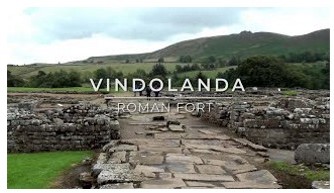AFL
Intent
At Heacham Junior School, our aim when teaching Latin, which is our ancient foreign language of choice, reflects the National Curriculum’s belief that we can liberate our children from insularity and provide an opening to other cultures.
By learning Latin our children will develop a deeper understanding of vocabulary and grammatical structures in English and in a Foreign Language. Latin lies at the root of 60% of English words, meaning that studying it also has a beneficial impact on pupils understanding of the English vocabulary. Our Latin curriculum will provide our pupils with a solid foundation for learning other languages in Key Stage 3 as well as enriching their current knowledge of the English language for speaking, reading and writing. It will equip children with linguistic knowledge, cultural capital and provide purposeful links to other topics in the National Curriculum to foster pupils’ curiosity and deepen their understanding of the world.
Implementation
We follow the unique Minimus Latin course for children, written by Barbara Bell and illustrated by Helen Forte. It is based on the lives of a real family at the Roman Fort of Vindolanda, near to Hadrian’s Wall in about 97 -102CE. Flavius, the Fort Commander, his wife Lepidina, their three children, assorted household slaves, their cat Vibrissa - and Minimus the mouse. This historical connection makes the learning of Latin more meaningful for our children as they develop their knowledge of the Latin language and investigate the derivatives of root words, alongside historical stories and classical myths.

Minimus offers a rich, balanced and progressive scheme of work which also supports other curriculum areas. The scheme is divided into chapters that cover different aspects of language with related work to assess understanding. Children fully immerse in each chapter before moving on and the learning is revisited and revised in subsequent chapters.
The aim of our lessons is to provide a linguistic foundation for reading comprehension and an appreciation of classical civilisation. We focus on translation of simple stories, understanding the many aspects of Roman life and studying the Greek Myths, from the Gorgon Medusa to Icarus and Daedalus. Lessons also provide a foundation for further language learning in KS3.
Through the teaching of an Ancient Foreign Language, pupils should be taught to:
- Listen attentively to spoken language and show understanding by joining in and responding.
- Explore patterns and sounds of language through songs and rhymes and link the spelling, sound and meaning of words.
- Speak in sentences, using familiar vocabulary, phrases and basic language structures.
- Read carefully and show understanding of words, phrases and simple writing.
- Appreciate songs, poems and rhymes in the language.
- Broaden their vocabulary and develop their ability to understand new words that are introduced into familiar written material, including through using a dictionary.
- Write phrases from memory, and adapt these to create new sentences.
- Describe people, places and actions in writing.
Academic Year 2024-25
As we begin teaching Latin in KS2, our upper KS2 will start with no previous knowledge in Latin to build on. Initially, Years 3-6 will have the same starting point on the programme of study. Ongoing reviews will take place to ensure the teaching is sufficient for each year group.
Once the current Y3 move into Y5, we will move into the intended 4-year cycle.
Impact
Children’s curiosity for different languages and cultures will be fostered by giving them opportunities to investigate and enhance their love and knowledge for different civilisations.
To view the Curriculum Overview click here.
